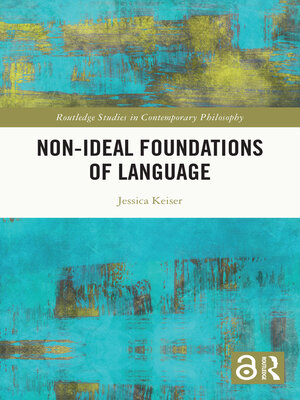Non-Ideal Foundations of Language
ebook ∣ Routledge Studies in Contemporary Philosophy
By Jessica Keiser

Sign up to save your library
With an OverDrive account, you can save your favorite libraries for at-a-glance information about availability. Find out more about OverDrive accounts.
Find this title in Libby, the library reading app by OverDrive.



Search for a digital library with this title
Title found at these libraries:
| Loading... |
This book argues that the major traditions in the philosophy of language have mistakenly focused on highly idealized linguistic contexts. Instead, it presents a non-ideal foundational theory of language that contends that the essential function of language is to direct attention for the purpose of achieving diverse social and political goals.
Philosophers of language have focused primarily on highly idealized linguistic contexts in which cooperative agents are working toward the shared goal of gaining information about the world. This approach abstracts away from important issues like power, ideology, social position, and diversity of goals which are crucial to explaining linguistic phenomena both at the semantic and pragmatic levels. This book begins by examining the work of some of the pioneers of this tradition—primarily David Lewis, Paul Grice, and Robert Stalnaker. The author shows that various problems have their source in idealizations made at the foundational level of linguistic theory and proposes to rebuild from the ground-up. She presents a non-ideal foundational theory of language which retains the major insights of traditional frameworks while rejecting the social idealizations that guide them. Then, she explores the social and political applications of her account to issues such as dog whistling, propaganda, racist speech, silencing, and manipulation.
Non-Ideal Foundations of Language will appeal to researchers and advanced students in philosophy of language who are interested in the social and political applications of language, as well as traditional metasemantic theory.






